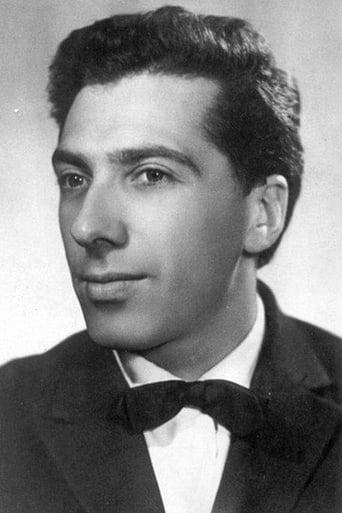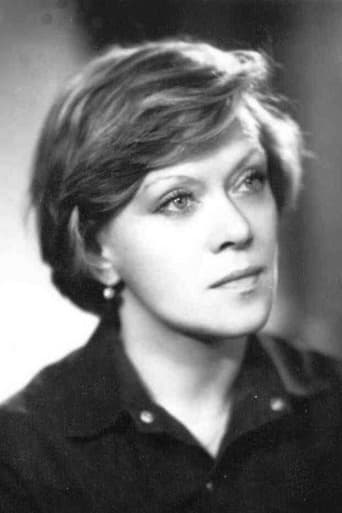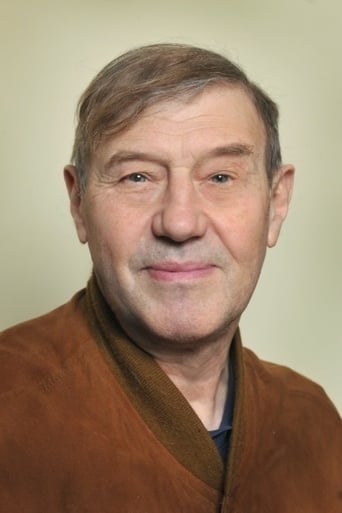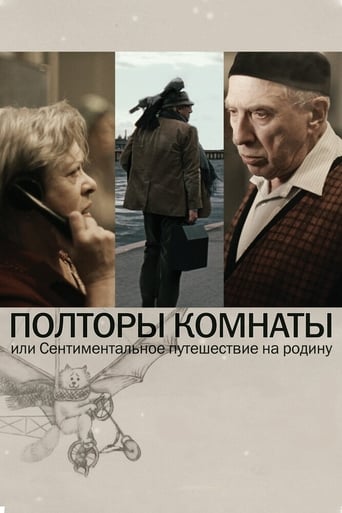
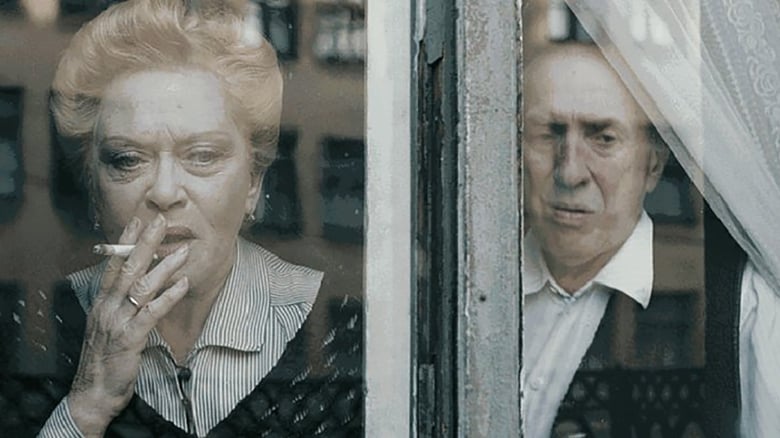
A Room and a Half (2009)
A semi-fictional account of the life of Russian poet Joseph Brodsky, who was forced into American exile in 1972.
Watch Trailer
Cast


Reviews
Fantastic!
In truth, there is barely enough story here to make a film.
It’s sentimental, ridiculously long and only occasionally funny
It's the kind of movie you'll want to see a second time with someone who hasn't seen it yet, to remember what it was like to watch it for the first time.
Andrei Khrzhanovsky's "Poltory komnaty" ("Room and a Half" in English) takes a fictionalized look at Joseph Brodsky. My interpretation of much of the movie is that Brodsky viewed the cat as a better friend than most people, but he did eventually make an effort to make peace with people. As he says at the end of the movie, we are all condemned to death.Much of the movie is told as animated sequences, creating an ethereal feeling. No doubt this is to emphasize Brodsky's disillusionment with life in the Soviet Union. One of the most effective scenes is a "meeting" that he has with his parents (in reality, all of them are dead by this point) towards the end of the movie. Whether in life or death, he didn't see much future for Russia.I've read a few of Brodsky's works. They certainly evoke a Russian existence. As for the movie, it's not a masterpiece, but I recommend it.
English readers of Joseph Brodsky's Book of essays that won him the Nobel Prize(Less than One) will recognize the film's title as coming from an essay in the book: "A Room and a Half." It is both a real and a symbolic space to which the poet never returned. The Filmmaker's fantasy-plot, however, takes off by withholding one of the most famous of Brodsky's poetic line "To St. Basil's (Vasilievsky) Island I will come to die." For those familiar with these lines, their absence becomes a form of suspense - until the are spoken in the last scenes. The historical canvas of Brodsky's like unfolds against a stylistic montage from Shadow-silhouette cut-out of the prerevolutionary poetic-aristocratic world of Anna Akhmatova, Dmitri Merezhkovsky, etc. to the use of this avant-garde art form in service of the October Revolution. The Stalin-era film is the orange-tinged film stock of that era; the animation of the crows in the snow seems lifted from master animators of the 1970s. As a biography the film make me think most of Andrei Tarkovsky's "Mirror," which brings together the scraps of images, paintings, poetry in an attempt to find a new wholeness with stream-of-consciousness connections, seamlessly connecting documentary images of the real Brodsky and his friends (as in th scene shot in the Restaurant Russian Samovar" on 53rd St.), with imaginary meeting of parents and child in the afterlife.
This film by 70-year-old Khrzharnovsky, an award-winning animator and documentary filmmaker, his feature debut, is an imaginative exploration of the life of exiled Russian Jewish poet and Nobel laureate Joseph Brodsky that wonderfully weaves actual footage and restagings, artfully distressed film in the manner of Guy Madden, color and black and white, animation, dramatized scenes and scenery, childhood, adulthood, and one sentimental but very touching scene between Brodsky and his parents after all have died, sitting in the cramped Soviet era room and a half where Joseph spent his youth and his parents lived out their days. We see the mature Brodsky as an exile in America, dreaming of returning to his homeland (he never actually did). It's all woven together with readings of Brodsky's poetry and prose, recollections of his development, and meditations on the journey back he took only in his imagination.Some of the early scenes of Brodsky trying to get to second base with girls and sampling jeans and vinyl records are reminiscent of Karen Shakhnazarov's recent film of a Sixties Moscow youth, The Vanished Empire (2008), except that here, with the setting moved to Leningrad, the sequences are more stylized. Before that we see Brodsky as a little boy coddled by parents and exploring his immediate surroundings. Throughout, Alisa Freyndlih and Sergei Yursky are excellent as Brodsky's mother and father.And as Brodsky grows up he becomes a confident intellectual, declaring his to be the last generation that will truly value culture and extolling the virtues of cigarettes as a wellspring of poetic creativity. He is outspokenly political, and this leads to exile to a remote village. A letter asks for a care package from home of mustard, cheese, and other delicacies, but says that he is fine. After he has been expelled from Russia and become a professor in he USA, first at the University of Michigan, later at colleges on the East Coast, he's seen drinking and partying, and recurrently calling his parents, who in turn are seen struggling with the bureaucracy to get permission to leave Russia to visit him; they never could. There's nothing about Brodsky's American family life. Focus is on his relationship with Russia.Though a bit long at 130 minutes, Room and a Half is an enchanting work of the imagination and remarkable for its blending of different visual and filming styles and engaging and beautiful animated sequences, often making use of blackbirds and cats. As a portrait of Brodsky, despite the rich actual Brodsky material, it's not to be taken literally, and hence stands more as a study of the theme of the artist in exile. This provides rich material that one would certainly love to show students if one were teaching a course in Brodksy's writing. (He came to the US in 1972 and was naturalize in 1977; died in 1996 at the age of 55.)Shown as an official selection of the New York Film Festival.
Out of the movie, the first thing I can think of is its sensual cinematography immersed in saturated colors. The film is more than a biopic, it involves the imagination of the writer and director to make it a poetic look into a Nobel laureate poet's life, that of Joseph Brodsky's.The movie starts in his childhood and ends after his death, and in fact the part after his death, like most of the other parts of the movie is beautiful fiction. There is an overdose of anti-Soviet tones but that must also reflect what he had to go through until his defection to the US and his parents' troubles with Soviet officials while trying in vain to visit him. No question all of that was true but somehow the movie put too much emphasis on it.The movie also explored family dynamics from childhood, in a touchy and insightful way how his family bonds were strong, though this also must be fiction. So it is actually better to watch this movie as a pure fiction movie and a good one. And to watch a biography mixed with fiction is surely refreshing.I have seen this movie in Istanbul Film Festival and found it as one of the better ones in competition.


